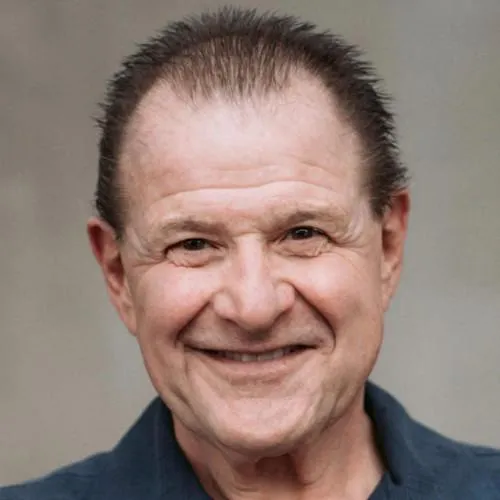The Human View™ Blog

Targeted Motivational Messaging for Well-Being
Despite comprehensive educational efforts, well-being and point solution providers continue to face a persistent challenge: many eligible participants simply don't enroll in programs designed to improve their health and well-being. For employees not to seek support and guidance means suboptimal engagement, which not only impacts individual health outcomes, but directly affects your solution's performance metrics, ROI validation, and ultimately, your market position.
The traditional "education-only" approach to health management marketing and communication isn't driving the critical mass of enrollment and engagement needed to demonstrate meaningful impact and value to your employer clients.

Beyond education: understanding the engagement gap
The fundamental issue isn't that potential participants lack information about your solution. Rather, they lack the motivation that resonates with their personal values and decision-making frameworks. Consider the preventive care program scenario: data consistently shows that most individuals would benefit from early intervention, yet enrollment often lags behind projections.
Why? Because we're answering questions participants aren't asking, while failing to address their actual concerns: "What's in it for me?" and "Why should I care?"
The neuroscience behind decision-making
Neuroscience research reveals that decisions about health programs aren't purely rational. They're influenced by emotional drivers, risk perceptions, and value frameworks that vary significantly across participant populations. Traditional communications that emphasize program features and potential health improvements often fail to connect with these deeper motivational triggers.

When an individual reviews health program options, their brain isn't simply calculating health outcomes—it's evaluating choices through personal lenses shaped by experiences, values, and fears. Different segments approach healthcare and well-being decisions through entirely different mental frameworks, which reveal predictable patterns as to how they respond to messaging.
The amygdala—our brain's emotional center—often overrides the prefrontal cortex's logical analysis when uncertainty is involved. This explains why many individuals default to non-participation despite clear evidence favoring engagement; the emotional security of "doing nothing" outweighs rational health analysis. Targeted motivational messaging addresses both the emotional and rational aspects of decision-making.
Psychographic profiling: the foundation of targeted messaging
Unlike demographic targeting (age, health risk, etc.), psychographic segmentation identifies potential participants by their specific attitudes toward healthcare, wellness priorities, and decision-making styles. Research has identified distinct segments that respond to fundamentally different health solution messaging approaches:

Self Achievers are proactive about health and respond to messages emphasizing performance optimization and personal control
Balance Seekers appreciate holistic approaches and respond to messaging that connects physical, emotional and financial wellbeing
Priority Jugglers make healthcare decisions based on family needs and respond to messaging about protection and security
Live-for-Todays are present-focused and respond to messaging highlighting immediate benefits and simplicity
Health Strivers are actively working to improve health and respond to supportive, encouraging messaging about progress
Treatment Believers prioritize professional medical care and respond to messages emphasizing quality care and expert access
By mapping these psychographic profiles across your target population, you can develop tailored motivational messaging that addresses each group's unstated concerns and values.

From communication, to comprehension, to conversion
The shift from education-only communication to targeted motivational messaging transforms the entire program enrollment experience. Instead of overwhelming potential participants with information and hoping they'll engage, this approach proactively addresses their specific motivational triggers:
For Self-Achievers hesitant about joining a diabetes management program, messaging might emphasize control over health outcomes and performance optimization. For Priority Jugglers, messaging can demonstrate how engaging with your solution creates comprehensive family protection and security.
These targeted approaches acknowledge the psychological barriers many individuals face—like loss aversion and status quo bias—and reframe choices to overcome these obstacles rather than simply providing more information.

Implementation and measurable results
Solution providers implementing targeted motivational messaging typically see 15-30% higher enrollment in their programs and significantly improved long-term engagement. The approach works because it transforms health decisions from complex cognitive challenges into clear, personally relevant choices aligned with individuals' existing value frameworks.
One digital therapeutic provider increased program enrollment by 23% after implementing psychographic messaging, resulting in significantly improved clinical outcomes for participants while also increasing employer satisfaction with the solution, which provided stronger ROI validation for their investment.
As health and well-being solution providers, our role must evolve beyond education to include motivational science. This doesn't diminish the importance of clear information—rather, it recognizes that information alone rarely drives action. By combining robust education with targeted motivational messaging that speaks to each psychographic segment's values, you create communications that both inform and inspire.

The last word
By speaking to what potential participants actually care about—not just what they need to know—targeted motivational messaging bridges the crucial gap between education and action, creating health and well-being solutions that better demonstrate value to both individuals and employer clients. The result is higher engagement, more consistent utilization, and ultimately, a stronger market position that delivers on your solution's promise to improve health outcomes and reduce healthcare costs.
~ Mark Head
© 2025. All Rights Reserved.
Click the green button or the blue button (below) to visit our scheduling pages.




Mark Head
President
With 4 decades of combined experience in employee benefits consulting, wellness and health management, Head brings a unique combination of dynamic perspectives into a clear vision of where the future of health care is moving - and it's moving towards deeper human connection, awareness, and engagement...
Follow Us On
© 2015 - 2025, MDH Consulting, LLC. All Rights Reserved.

